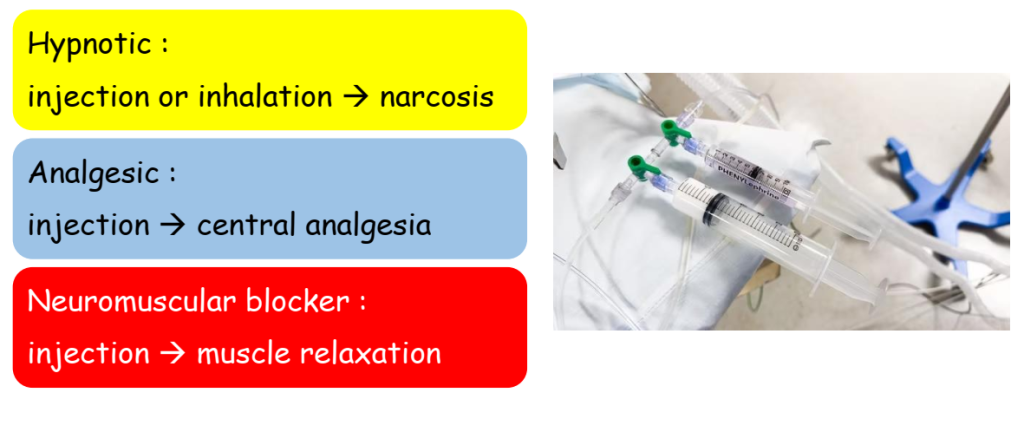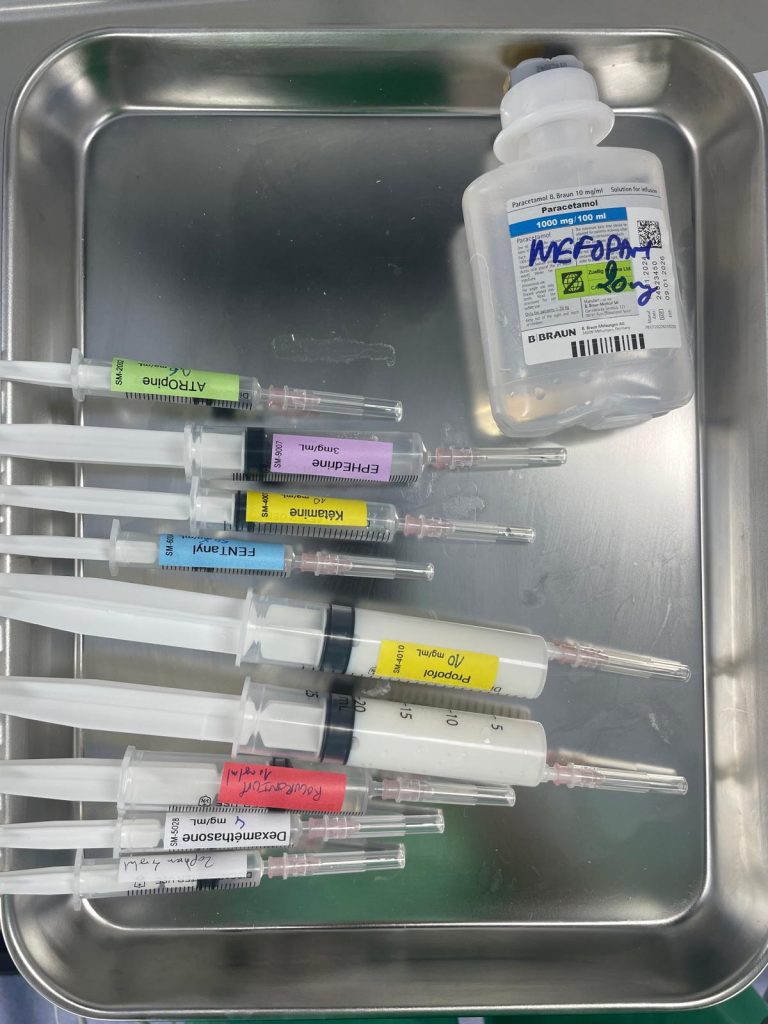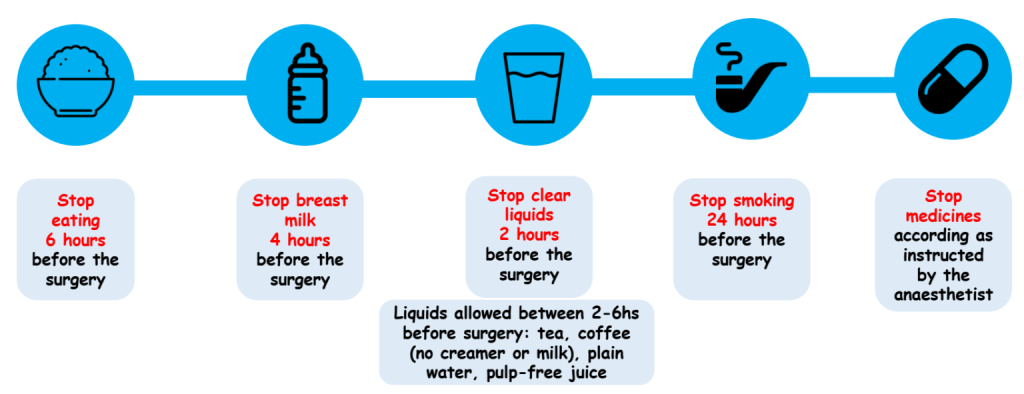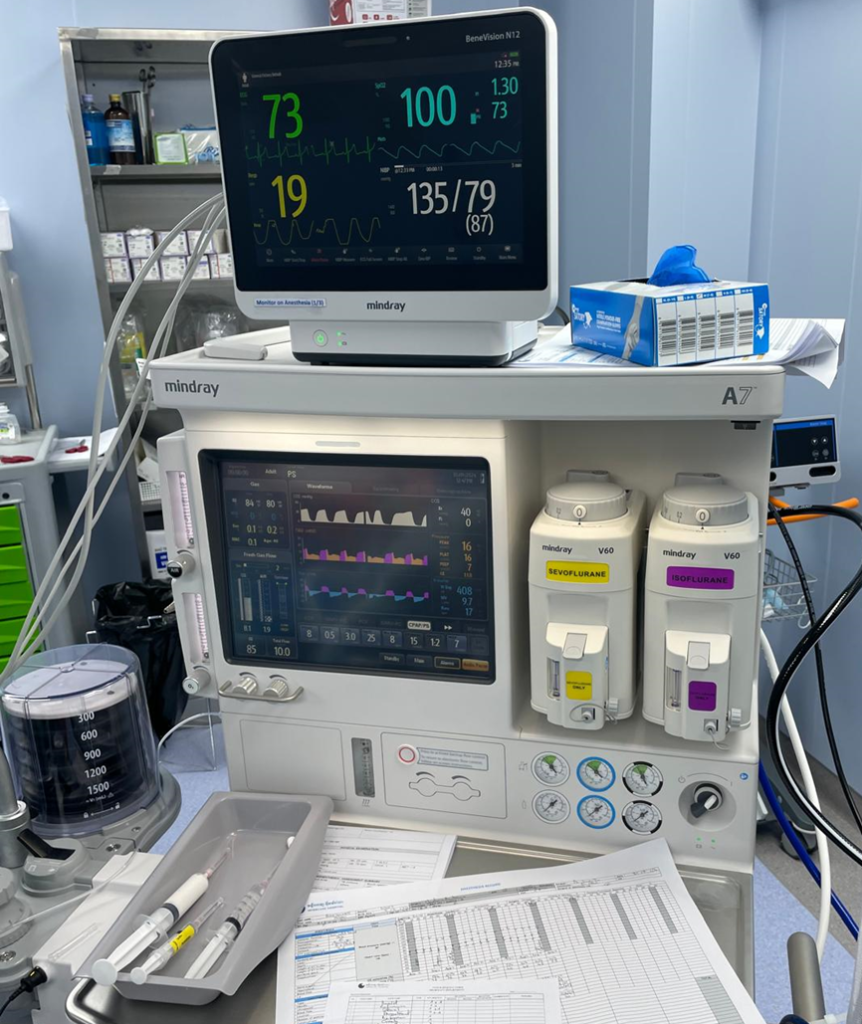
- What is General Anesthesia?
General anesthesia is a medical treatment that uses medications to induce a state of controlled unconsciousness during surgical or medical procedures. It ensures that the patient is completely asleep, unaware of the procedure, and free of pain.
- How does General Anesthesia work?
General anesthesia works by administering a combination of intravenous drugs and inhaled gases. These medications affect the central nervous system, blocking pain and sensation, and inducing a sleep-like state. The anesthesiologist carefully monitors and adjusts the anesthetic agents to maintain the desired level of unconsciousness.
- What are the common medications used in General Anesthesia?


Common medications include:
– Induction Agents: Such as propofol, to quickly induce unconsciousness.
– Inhaled Agents: Like sevoflurane to maintain anesthesia.
– Analgesics: Opioids like fentanyl for pain relief.
– Muscle Relaxants: Such as atracurium or rocuronium to relax muscles for easier surgery.
- How do I prepare for General Anesthesia?
Preparation includes:
– Preoperative Assessment during the preanesthetic consultation: Provide detailed information about your medical history, current medications, blood test results and any allergies.
– Fasting: Follow instructions on when to stop eating and drinking before the procedure, typically 6-8 hours prior the surgery (6 hours for light meals, 8h for heavy meals, 2 hours for clear liquids without milk or pulp).

– Medication Review: Discuss any medications or supplements you’re taking with your healthcare provider. Some medications have to be stopped before a surgery for your safety.
- What can I expect before, during and after the procedure?
– Pre-Anesthesia visit: The anesthetist will check again your identity, the type of surgery and anesthesia, allergies, whether the fasting rules have been respected and whether the instructions regarding medication management have been followed.
– Monitoring: Your vital signs (heart rate, blood pressure, oxygen levels) will be continuously monitored.

– Induction and maintenance: You’ll receive anesthesia medications, typically through an intravenous (IV) line, which will make you fall asleep.
– Wake-Up: After the procedure, you’ll be gradually awakened in a recovery area, where your vital signs and overall condition will be monitored.
- What are the risks and side effects of General Anesthesia?
Risks and side effects may include:
– Nausea and Vomiting: Common but usually short-lived. The anesthesiologist can use medications to prevent these side-effects.
– Drowsiness: Feeling groggy or tired post-anesthesia.
– Allergic Reactions: Rare but possible.
– Serious Risks: Including allergic reactions, breathing problems, or heart complications, though these are rare and managed by the anesthesiology team.
- What should I do after the procedure?

After the procedure:
– Recovery Time: You will need to rest until the effects of the anesthesia wear off. This may take a 1-2 hours.
– Follow-Up Instructions: Adhere to any specific instructions provided by your healthcare team regarding diet, activity, and wound care.
– Postoperative Care: Be aware of signs of complications and contact your healthcare provider if you experience unusual symptoms.
- Are there alternatives to General Anesthesia?
Yes, the anesthetist will suggest different alternatives if possible. He will explain the risks and benefits of each solution to you.

– Local Anesthesia: Numbs a specific area of the body but you remain awake.
– Regional Anesthesia: Blocks sensation in a larger area, such as an epidural or spinal anesthesia.
– Sedation: Provides a calming effect and light sleep but may not fully eliminate awareness.
- Can I choose not to have General Anesthesia?
You can discuss your preferences and concerns with your anesthesiologist. He will help you understand the best anesthesia option for your procedure based on its type, duration, and your overall health.
- How do I know if General Anesthesia is safe for me?
Your anesthesiologist will evaluate your health history, current condition, and any risk factors. They will tailor the anesthesia plan to ensure safety and effectiveness based on your individual needs.
- Where can I get more information?
For more information, consult your anesthesiologist. They can provide detailed explanations tailored to your specific situation and address any concerns you may have.
By Dr Solène Paul – Anesthesiologist and Intensive Care physician

Your health is our mission
